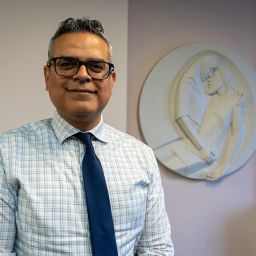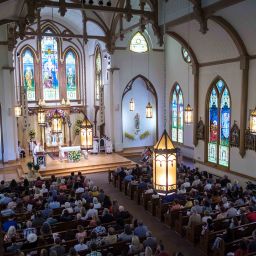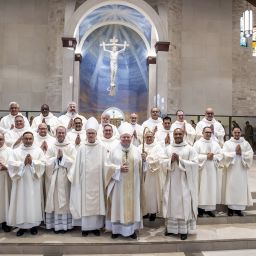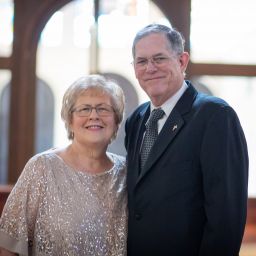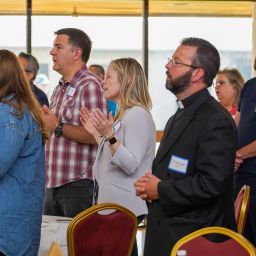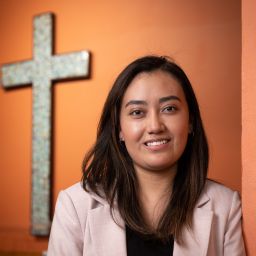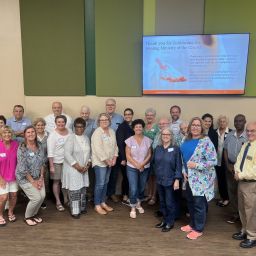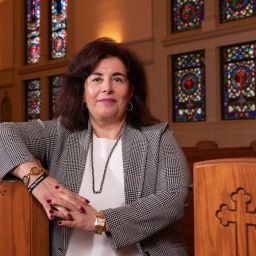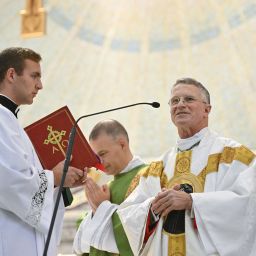
From Staff Reports
The U.S. Conference of Catholic Bishops recently hosted a significant dialogue on catechesis and evangelization, welcoming Archbishop Salvatore Fisichella and his team from the Dicastery for Evangelization for discussions with diocesan representatives during the 2023 Spring Plenary Assembly on June 13 in Orlando.
The dicastery meetings with representatives of episcopal conferences began after the publication by the Pontifical Council for Promoting the New Evangelization in 2020 of the Directory for Catechesis and “Antiquum Ministerium” (Ancient Ministry), the motu proprio with which Pope Francis instituted the ministry of the catechist in 2021.
Among those in attendance in Orlando was Diocese of Dallas Senior Director of Ministries Peter J. Ductrám, who was invited by USCCB as a regional diocesan representative.
“I was honored to have served as a member of the core team that drafted and launched the Institute on the Catechism,” Ductrám said. “This institute finds its vision and structure in the Directory for Catechesis. The main purpose of the institute is to serve local bishops, collaborate in the formation of catechetical leaders, strengthen collaboration with institutions of higher learning, and to accompany Catholic publishing houses to create catechetical materials rooted in effective evangelizing catechesis.”
In his role as a regional diocesan representative, Ductrám joined the discussion on the reception of the Directory for Catechesis among catechists in U.S. dioceses, parishes, and schools; the main strengths and difficulties of catechesis in the U.S., with children, adolescents, youth, young adults and adults; and the formation of catechists in the U.S.
“The Directory for Catechesis offers guidelines for our bishops, as the primary catechists in their local diocese, for the implementation of formation as an evangelizing process for all faithful,” said Ductrám, explaining that it took several years and different sets of dialogues and consultations leading to the publication of the directory, which occurred during the global pandemic.
“This new directory is marked by the centrality of the kerygma within the dynamic and ongoing process of evangelization,” he added. “Some of the important contributions of the directory are on the importance of personal and communal discernments, empowerment of those serving the vulnerable to continue to find creative ways of accompaniment in their faith journeys; the vocation of the catechist as witnesses of the beauty of the love of God; and the urgency of creative, bold models of catechesis inspired by the Spirit.”
Ductrám, who has been invited to continue to serve as a catechetical consultant for the U.S. bishops, called his experience serving as part of that core team for the Institute on the Catechism “reaffirming, encouraging and inspiring.”
“We, in the diocese, are now leading many of the bold evangelization and catechetical processes,” he said. “All of this is possible thanks to the dedication and passion of our parish leaders, expertise of our diocesan team, and the visionary leadership of our shepherd, Bishop Burns. The diocesan synod in itself is a testimony of this.”
Ductrám, however, stressed that there is much more to do as the diocese accompanies its fast-growing community of faith.
“We, rooted in prayer, need to continue creating spaces for communal efforts to encounter Christ and strengthen our relationship with Him in His church everywhere we are called,” Ductrám said. “I pray that we might never lose an opportunity to proclaim, witness and live the Gospel in truth and mercy.”




